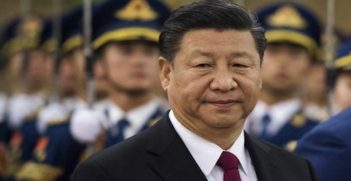The World Watches Australia’s News Media Code

Australia’s proposed news media code highlights tensions between self-interest, the needs of democratic media, and new challenges to laissez-faire regulation of transnational firms. This action will highlight the market power, privacy failings, and democratic implications of digital giants.
The Australian government is pushing forward its mandatory code requiring tech giants Google and Facebook to negotiate – within a set of legislated parameters – with Australian news businesses. The core of these agreements is the proposal of legislated payment for news links used on their platforms. If agreement under the code cannot be reached, the big stick proposed in the legislation is the referral of the parties’ final best offers to an independent arbitrator panel to choose the fairest binding offer.
Australia is an appropriate site for this conflict, with a massively concentrated news media that has seen increasing consolidation and temporary bailouts during COVID-19. The legislation is currently moving through the Australian Parliament, accompanied by vigorous public debate, private negotiations, and lobbying.
This case highlights questions repeated around the world: Who pays for news now that advertising has been decoupled from content production? Should digital media giants pay for news content links? If so, how should that value be calculated, and by whom? Recently, the Canadian Heritage Minister, Stephen Guilbeault, argued that “payment should go to those who create,” but this raises the question of where in the digital media ecosystem value is actually generated.
The positions
Australian domestic news media have broadly supported the code as it has developed over the last three years, with a The Australian op-ed putting the argument from the beneficiaries’ perspective, stating, “Publishers deliver this [news] content into a digital ecosystem that is primarily controlled by two companies, Google and Facebook. These companies use proprietary, profit-centred artificial intelligence to determine where and when news shows up in searches and feeds.” This highlights two aspects of the debate: that news content needs to be paid for, but also that search engines and social media platforms exert considerable influence on the visibility and discoverability of online content.
In response, Facebook argues the code will make the provision of news links on its platform unviable. The company presented a number of criticisms of the code. It first argued there is benefit to news businesses from using distribution platforms such as Facebook to promote themselves. It then proposed the code’s “one-sided binding nature” gives news owners a weighted advantage in negotiations. Finally, Facebook raised that it gives news businesses unprecedented notice of Facebook’s new products as changes to the algorithms used on the platforms must be provided to news organisations.
Google, talking to its user base directly in a way it has rarely done before, reinforces concerns about charging for links, using the metaphor of a café “charging the friend” who recommended the visit. The firm highlighted it has developed a pay-for-news model, the Google Showcase, which demonstrates agreements could be reached without state intervention in the free market. Interestingly, Google’s Australian head has identified that their opposition to the legislation is in part motivated by its potential international precedent, something unlikely to concern Australian legislators much. Less trivially, however, was a threat to withdraw from the Australian market and well-publicised “experiments” that reduced the number and diversity of news links shown to users in searches.
International opponents include web founders Tim Berners-Lee and Vint Cerf and a host of “don’t break the web” supporters highlighting basic web principles like free linking. Critics of the code also point out that the lack of resources for news is more a feature of post-digital restructuring within media organisations. In Australia, and around the world, many of the largest news organisations still generate massive advertising revenue, but this is now decoupled from their news units. Examples noted include Nine’s allhomes.com.au and News Corps’ Foxtel and REA Group, each once part of a single profit centre called a “newspaper.”
Outside of the big players, the independent, small, and regional publishers have less vocal roles, but they stand to benefit in smaller ways if the code becomes law, and they bargain collectively. Seven smaller publishers have signed up to Showcase, including The Canberra Times and Crikey.
Broader implications and global policy debates
Australian legislation could set a precedent, particularly in the EU, where concerns about the market power and privacy implications of US-based digital media firms have been on the active political agenda for years. Germany has drafted controversial legislation (due to come into effect in June 2021, if successful), which tightens existing copyright law to define relationships between creatives, rights exploiters, and users.
Though this legislation will impact Facebook’s revenue stream, it differs from the curbing of monopoly power at the bargaining table and the comprehensive business-to-business approach taken in Australia. France has introduced legislation, “neighbouring rights,” which obligates the platforms to negotiate payment for content with publishers in good faith. This occurred after French courts ruled that Google had caused “serious and immediate harm to the press sector.” Unlike the Australian proposal, it did not compel compensation. Google announced its support of publishers in a post on its official French blog.
Most recently, Microsoft has been reported as promoting the Australian model to the Biden administration as a potential salve for the problems of the news media market in the US, which currently works to deepen the regulatory problems they face. This coincides with acknowledgment that major tech platforms have become a focus of US anti-trust laws. The ongoing fallout of the Trump administration will see these firms under regulatory spotlight for years to come, regardless of which party is in ascendancy.
Beyond anti-trust, the typical answer to monopoly power is to promote new market entrants. However, developing competitive alternatives to the platforms has proved difficult in an international digital environment largely built by, and dependent on, Google and Facebook. China’s Baidu and Qihoo360 and Korea’s Navar are nation-based exceptions in “search.” But Google offers the most comprehensive search results, and Facebook has cracked a user-pleasing formula to connect people, routinely innovating user products.
The threat of withdrawal of these platforms’ services has been dismissed by the Australian government as minor, arguing services are replaceable. However, such service withdrawal would present Australian users with more than a passing inconvenience depending on the nature of withdrawal. Google provides services well beyond search (which might be comparatively painlessly replaced by Microsoft’s Bing, or the privacy-friendly DuckDuckGo), with millions of Australians using Google’s email, calendar, online office suite, authentication tools, and cloud storage drives.
Simply replacing Google with Microsoft would not resolve the underlying conflict. While Senator Sarah Hanson-Young, currently serving on the Senate committee considering the bill, has proposed a nationally funded search engine, the idea remains extremely unlikely. Recently, European attempts to replace Google’s search with nationally developed equivalents have floundered.
Globally, it is obvious that the voices calling for stricter regulation of the tech behemoths have increased, becoming more strident over the last year of the Trump presidency when attention was focussed on the negative influence of digital platforms and their part played in the difficult transition of democratic power. While international critics have pointed to the dangers of the platforms’ monopoly power and the failings of their regulation of user conduct in areas such as misinformation, hate speech, exploitation, and conspiracy theories, anti-trust regulation is likely to be the way that the platforms’ power will be regulated in the US.
Google and Facebook are being called to account because their business models are perceived to be unfairly extractive. However, another significant but largely implicit motivation behind regulation is because of their ubiquitous, untrammelled communicative power in political and corporate affairs and, overall, in curating individuals’ information landscape.
Postscript: 18 February 2021
Minor amendments to the bill (published on February 17) respond to the detail of submissions by the media organisations, and by the platforms. Prior to the bill becoming law, more companies are signing agreements with Google Showcase News. The largest commercial deal to date is with Seven West Media; Nine Entertainment, the ABC, and the Guardian are also reported to be signing letters of intent with the platform. Though details of the agreements are unknown, the bill’s mandatory arbitration feature appears to have quickened Google’s mutual resolve to negotiate.
On 18 February, Australian Facebook users work to discover the platform had stopped the sharing of news links on their platform, with the scale of prohibitions going far beyond conventional news services to include some news blogs (including Australian Outlook), satire sites, and union pages. This can be interpreted in a number of ways, but should be read in terms of the precedent that Facebook is making to international governments interested in Australia’s laws. This decision can be reversed at any time and may form part of ongoing discussions between Facebook, the Australian government, and Australian media organisations, where Facebook has “rebalanced” their negotiating position from one where they were subject to enforced price arbitration, to one where they can demonstrate a willingness to withdraw from the Australian news market. Significantly, while some news organisations have presented the link sharing of Facebook as a net cost to their companies, the loss of discoverability and shareability via Facebook allows us to test if this does provide the type of value to news providers that Facebook has claimed. At the time of writing, it is unclear if there will be a popular response to either or both Facebook or the Commonwealth as a result of this policy brinksmanship.
Associate Professor Mary Griffiths is a visiting research fellow in the Department of Media at the University of Adelaide.
Dr Peter John Chen is a senior lecturer in Government and International Relations at the University of Sydney.
This article is published under a Creative Commons License and may be republished with attribution.




